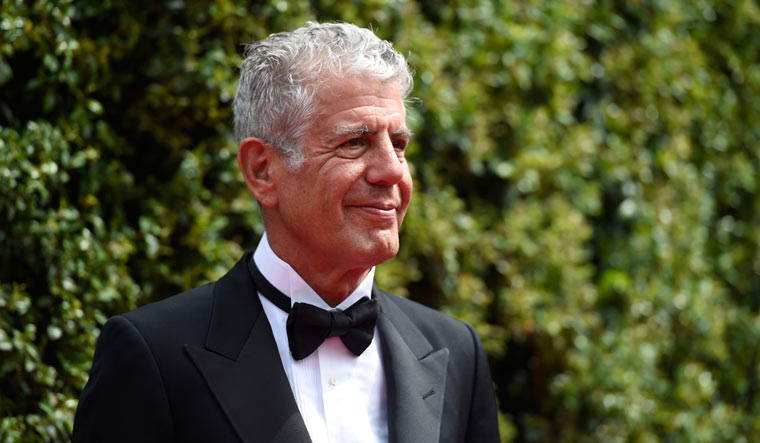
The news of US celebrity chef Anthony Bourdain’s death has sent shock waves across the food world and beyond. Bourdain, who will be remembered as a renowned chef, author and TV personality, was also an intrepid journalist. He pioneered a kind of a cultural field reporting which offered an unpretentious window into the lives of people who toil and sweat to earn their bread, who are the hidden cogs of a food chain whose most ostentatious and snobbish aspects are held up as aspirational. He travelled the world in search of stories connected to food and eating and living. He patiently listened, and allowed himself to be carried away. When he came to India in 2006 to shoot an episode of his TV series No Reservations, he characteristically observed: “To be in India, anywhere in India, is to risk being endlessly enchanted and repelled, until your senses wanna to shut down.”
A major part of that episode was devoted to his time spent in Kolkata, although the same episode also featured the high-energy Maximum City Mumbai. Bourdain pointed out how these two were the only cities in India, with their tightly-packed interweaving of class and cultures, which reminded him of home, that is New York. Bourdain took a second class train to reach Kolkata and immersed himself in its sounds, smells, shapes and colours, traversing a journey which has charmed countless other dreamers, authors, filmmakers.
After intently watching a cock-fighting match in rural Bengal, digging into a two-rupee plate of poori-aloo bhaji in a flower market under the Howrah Bridge and attending local wrestling matches and temple rituals, you could only trust Bourdain to cleverly remark, “Incidentally if you are going to be reincarnated in India , I highly recommend being a cow. The service is excellent.”
He even waded into the sets of a TV serial shoot, where he dined on a simple, wholesome thali with the cast and crew. Mamata Shankar, Bengali actress and daughter of famous Indian dancer Uday Shankar, was in the middle of a shoot, but happily entertained her curious guest who derived a great sense of reassurance from the fact that soap operas the world over are the same, like good old comfort food. In a Mid-Day article, Mamata fondly reminisced: “He was a happy Frenchman, consumed by food. We ate together that afternoon and he surprised me with his knowledge of Bengali food. He was a khaddo rashik (gourmand). I told him about my father and uncle (Pandit Ravi Shankar). He was familiar with their work. I was surprised how much he knew about my family.”
Accompanied by a popular food columnist Nondon Bagchi, Bourdain played a hectic round of cricket at Kolkata’s Maidan and followed it up with a round of jhaal muri and a similar version of the savoury snack served with crackers from vendors on the fringes of the park. This wasn’t very dissimilar to eating nachos after a game of baseball, the dapper chef thoughtfully pointed out.
When onboard a ferry in the Sundarbans to escape the hectic flurry of the city, Bourdain was your green hero worried about submerged islands and sustaining biodiversity. But every global issue for Bourdain had an entry-point from food. Who would have thought that prawns and bhetki fish in extra virgin diesel oil could be so tasty, Bourdain observed as any real journalist would, always curious, open-minded and unafraid of the unknown.
source: http:theweek.in / The Week / Home> Leisure> Lifestyle / by Sneha Bhura / June 09th, 2018